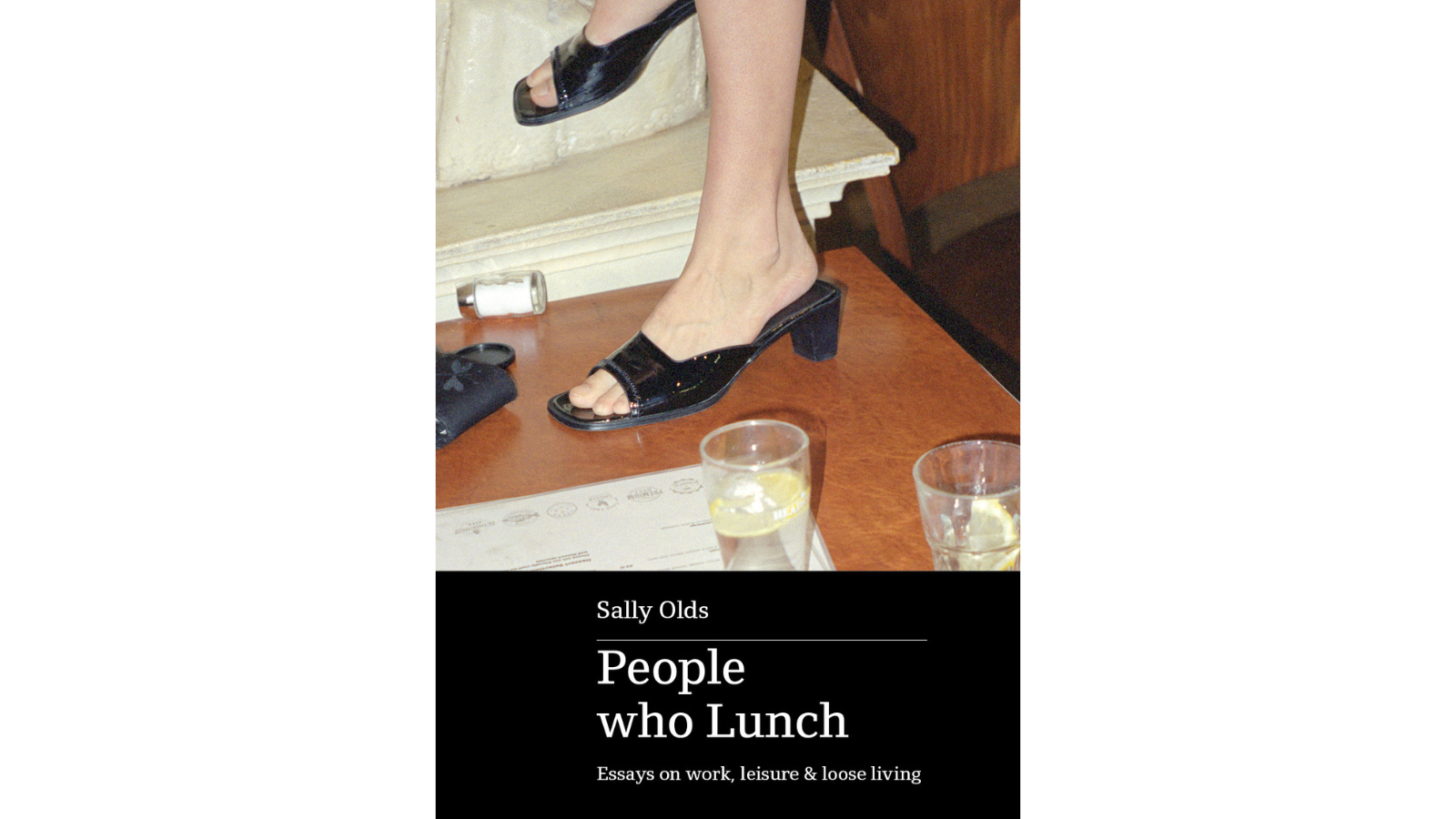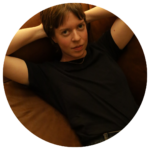VPLA 2023
People who Lunch: Essays on work, leisure and loose living
Non-Fiction Award Shortlist

Title: People who Lunch: Essays on work, leisure and loose living
Author: Sally Olds
Publisher: Upswell Publishing
This book is about working and not working, hating work and needing to work, intimacy and technology, money and love, labour and pleasure. Across a series of essays, Sally Olds probes the ambivalent utopias of polyamory, cryptocurrency, clubbing, communes, a secret fraternity, and the essay form itself. Curiosity drives each of these adventures into projected worlds, where Olds explores how living with precariousness changes expectations of how a life can be lived in this thrilling appraisal of the state of things.
Judges’ report
People who Lunch is a playful, taut, and unsentimental study of the politics of desire, pleasure, and community at the interstice between late capitalism and the next worse thing. Olds is keenly aware of the critical limits of the essay form, and the political limits of bourgeois subjectivity, but refrains from the shallow absolutions of irony. These essays pitilessly deconstruct the premature closures and ethical pretensions of the contemporary personal essay, and with a committed but wry and essentially secular eye, ask what can and what can’t be done with the ruins.
Extract
By the time I learned of the Buffaloes, I had been inadvertently frequenting their Australian headquarters for years. It was a Friday night, and I was standing outside a nightclub in Melbourne called Hugs & Kisses, sometime in early 2018. I wondered aloud about the building—a two-storey red-brick warehouse that looked industrial, or pre-gentrification industrial, given that ‘industrial’ usually refers to post-industrial buildings retrofitted with industrial chic (open spaces, washed concrete, bare bulbs). The club, my friend said, was leased to a guy named Hugo by an all-male secret society who occupied the bottom floor, possibly closeted gay men, victims of an outdated repression, and definitely Satanic. We were standing right outside their front door.
A few months later, I hear that Hugs is shutting down, and that the Buffaloes have sold the building for $6.25 million. A friend of a friend puts me in touch with the Hugo in question. Hugo is Hugo Atkins, someone I’ve seen around—a solid mustachioed figure in glasses—but never properly met. We text back and forth, and then we speak on the phone so he can tell me what he knows about the Buffaloes. It’s not much, he says, but he was initiated into their Melbourne chapter in 2010, when he was twenty-one. All up, the ceremony took about three hours over the course of a summer afternoon. He remembers arriving at their city lodge—which is also their Australian headquarters—and waiting in a vestibule dominated by a large framed painting of a buffalo, and that the men gave him ‘infinite ciders’: ‘they were trying to get me wasted’. He was blindfolded and led into the main hall, and he remained blindfolded for about twenty minutes as the initiation began.
‘It was surreal,’ he says.
He remembers smoking something from a clay pipe, he remembers people chanting, he remembers the phrase ‘bring in the goat’—but there was no goat, it was some kind of in-joke—and receiving a password, which was kind of like a nursery rhyme where each party had to fill in the blanks. They told him secrets that he can’t remember any more, and that he wouldn’t tell me if he did, and which I say I wouldn’t ask him to, though I wonder whether I would be able to hold out if he were offering. At the end, he was given a ‘club passport’ and sent on his way, swaying through the cobblestone back streets of Melbourne’s city centre. He had no intention of using the passport. The ritual was a formality insisted on by the old men. His own motivation was much more prosaic: property. He wanted to rent the second floor of their building, a dank warren of rooms with a long wooden bar in the largest of them, and open a nightclub there. Better still was the liquor licence. The Buffaloes were officially a social club, which meant they could serve alcohol 24/7 to their members and didn’t need to hire security guards or follow lock-out laws; provided that all the punters signed up ahead of entry, Hugo could throw all-night parties with impunity. And what was in it for the Buffaloes?
‘There was an impending sense of doom,’ he says, old members dying and no new ones joining.
So they liked the club idea, at least at first, the young people coming through every week in their strange clothes, though Hugo did bend the truth and tell them it was a jazz club. Also, they needed the money. The Buffaloes owned the building, but council rates alone cost them
$30,000 a year, and this plus their dwindling membership meant that they were rapidly going broke.
When you bring up Hugs & Kisses in the right company, people tend to have a lot to say. They will tell you about smoking in the tiny wedge of a room off the dance floor; about the time they saw three people fucking in one of the booths; about the time they saw someone pissing into the old broken piano that sat in the toilets next to the basins. But this, about the Buffaloes, was the most interesting thing I’d heard in a long time and I decided to do some digging.
About the author

Sally Olds is a writer from Queensland living in Naarm/Melbourne. Her work has been published by Sydney Review of Books, un Magazine, AQNB, the Institute of Modern Art. She has collaborated extensively with Precog, a club night held in Naarm, and taught writing workshops in and outside of university. People Who Lunch: Essays on work, leisure and loose living is her first book.
Related Posts

Read
Anne-Marie Te Whiu Receives The Next Chapter Alumni Poetry Fellowship
2 Apr 2024

Read
What's on in April: Resident Organisation Round Up
28 Mar 2024

Read
Blak & Bright First Nations Literary Festival returns in 2024
7 Mar 2024

Read
What's on in March: Resident Organisation Round Up
29 Feb 2024

Read
Hot Desk Extract: International
23 Feb 2024

Read
Hot Desk Extract: The Rooms
23 Feb 2024
Share this content